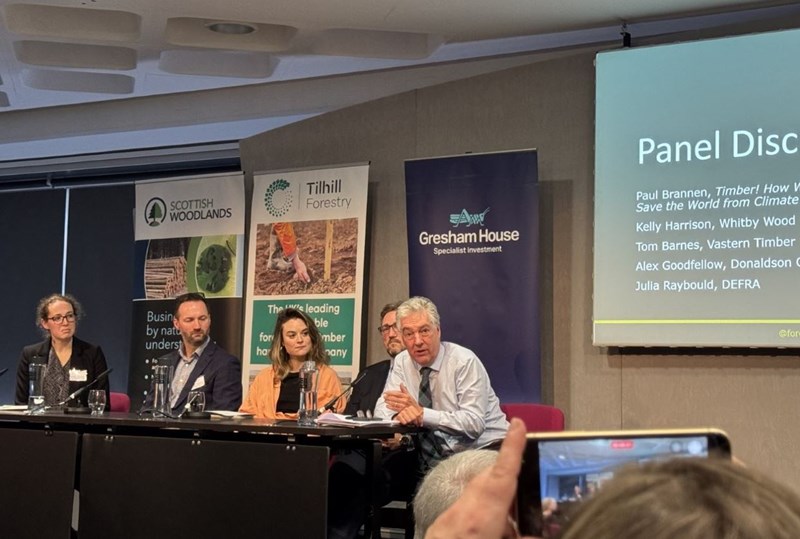One of Scottish Woodlands’ graduate recruits explained the importance of the company’s policy of ‘growing its own’ future leaders at a major policy conference in London
Jillian Kennedy, a Forest Manger based in Perth, also explained why the forestry industry must appeal to a wider range of potential recruits, at Confor’s annual event at the QEII Centre in London.
Scottish Woodlands Ltd was one of the sponsors of the event, where speakers included UK Forestry Minister Mary Creagh, who said that the forestry and wood industry must “inspire the next generation of tree guardians”.
During a panel discussion on skills challenges, Jillian Kennedy said 60 young people - including her - had been through the Scottish Woodlands Graduate Development Programme since it was launched in 2017, with 65% still working for the company.

The programme was launched to tackle recruitment challenges as Scottish Woodlands expanded and faced an increased workload. There was a limited talent pool, especially with fewer educational institutions offering forestry qualifications.
“The Graduate Development Programme is a cost-effective approach, which can help staff retention and loyalty - and it provides a great bridge between university and work,” Jillian said. “It gave the business more boots on the ground and a more diversified intake - including the variety of courses that graduates had studied. It’s allowed us to draw on a wider talent pool and to promote ourselves as an employer of choice.”
Jillian said she had a good grasp of soft skills when she joined the programme in 2018, and learning technical and practical skills had been vital - as she had not done a forestry degree. “The programme was a great way to learn all aspects of the business through work experience, shadowing colleagues and on-job training. It allowed me to develop skills and competencies in a real-life customer-focused environment.”
“I had a good understanding of the general rural landscape - apart from forestry! - so there was a lot to take on. I really enjoyed being on-site with contractors, meeting clients and designing new woodlands.”
As someone with a farming background, Jillian said it was vital to ensure the widest range of people understood forestry was a viable career option. She described how there had been a large block of forestry at the side of the family farm in Perthshire, but that she had never considered a career in forestry until several years later.
She thought the forestry industry could try to be more “approachable” and that other rural sectors were maybe better at making themselves heard. As an active senior member of the Scottish Association of Young Farmers’ Clubs, Jillian has worked hard to encourage better working relationships between farmers and foresters, and greater mutual understanding.

After the conference, Jillian said: “It was great to take part, and to hear from an array of speakers all driving to better the industry: from tree planting, to striving for embedded carbon in new housing.”
David Robertson, Scottish Woodlands’ Investment and Business Development Director, was also at the conference. He said: “It was terrific to hear one of our own graduates talking about the development programme on a UK-wide stage."
“The Confor policy conference is a great opportunity to take stock of the past year, and think about what is coming next - and there are always some real ‘Wow!’ moments This year, they included the fact that England has lost almost 37,000 hectares of conifer forest since 2010."
“It was also great to hear Sitka spruce described as a climate champion, and that the market is moving inexorably towards building more and more timber homes.”
He added: “The conference is always a great opportunity to catch up with contacts and to make new connections. It was great to see so many students and young foresters there learning more about our sector and their future role in it.”
